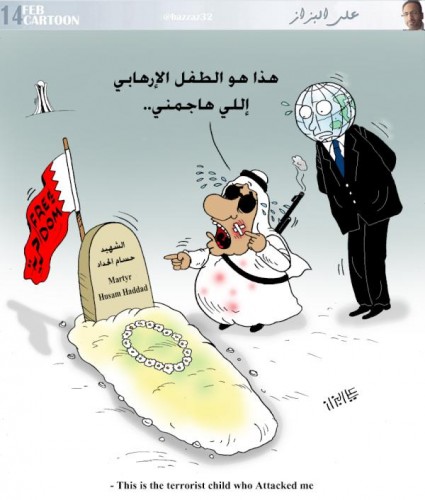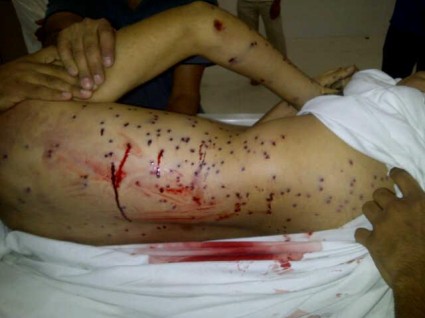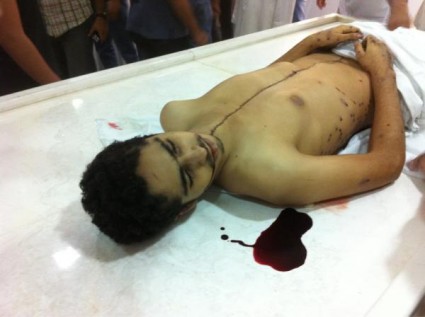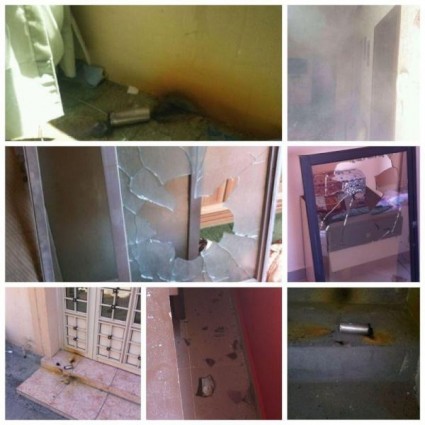Bahrain: ICRC begins visits to detainees
Bahrain: ICRC begins visits to detainees
2 February, 2012 – Interview
In connection with the violence that erupted in Bahrain a year ago, resulting in numerous arrests, the ICRC has started visiting detainees in the country. Gerard Peytrignet, head of the ICRC regional delegation in Kuwait, explains.
What is the aim of the ICRC’s visits to detainees in Bahrain?
The main objective of our visits to detainees – whether in Bahrain or elsewhere in the world – is to monitor their conditions of detention and their treatment and bring about improvements where necessary. It is important to recall that people arrested and detained must at all times be treated humanely and held in decent conditions. We check whether they have access to basic necessities such as food, sanitation, health care, contact with family members, etc.
Another important focus of our visits is to monitor the treatment the detainees receive, from the moment of arrest and throughout the entire period of their detention – including during the interrogation period and pre-trial detention.
Detainees who have not been able to contact their families will be given the opportunity to send messages to them. This is of course done in full transparency: the detaining authorities check the messages, which are allowed to contain nothing but family news.
Why have the visits begun only now, almost one year after the civil unrest erupted?
We have been engaged in dialogue with the authorities in Bahrain for several months. The dialogue resulted in the signing of a memorandum of understanding with the interior ministry in December 2011. On this basis, we started to visit detainees in the second half of January. The ICRC had already visited places of detention in Bahrain between 1996 and 2001.
Which are the detention places the ICRC has access to? And which detainees do you have access to?
We are currently visiting Jaw prison in Manama, the main detention facility in the country. The visits are being carried out by a team of five ICRC delegates, including one physician. Under the agreement with the Bahraini authorities, we have access to all detainees held in connection with the current unrest.
Will detainees trust the ICRC? Will they speak freely to its delegates?
Visiting detainees, anywhere in the world, is a challenge. Our overall aim is to ensure that detainees are treated humanely and held in satisfactory conditions. There are standard conditions for carrying out visits to detainees. In order to get an independent and accurate picture, we need to be able to tour the premises, to repeat visits as often as necessary, to have dialogue with the detaining authorities, and to talk freely with the detainees of our choice, in private.
Private talks with detainees are central to assessing detention conditions and treatment. But they are also a way of bringing some humanity to places where people are cut off from their families and friends. The personal relationship you have with prisoners is paramount because what you bring as a human being can sometimes already bring some kind of relief. Visits are repeated frequently, in order to enable us to monitor individual cases effectively. This also helps build trust with the detainees we visit.
[Read more →]
August 20, 2012 No Comments
Dead Children Can’t Speak of Their Killers Crime
August 20, 2012 No Comments
President Obama no stranger to the Murder of 16 year olds
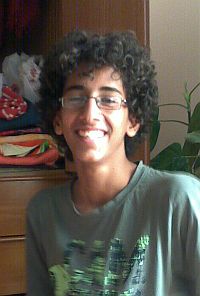
16 yo – Abdulrahman al-Awlaki – U.S. Citizen
American 16-year-old boy — latest victim in Obama’s global drone war
by News Sources, 19 October, 2011 – WarInContext
The Washington Post reports: In the days before a CIA drone strike killed al-Qaeda operative Anwar al-Awlaki last month, his 16-year-old son ran away from the family home in Yemen’s capital of Sanaa to try to find him, relatives say. When he, too, was killed in a U.S. airstrike Friday, the Awlaki family decided to speak out for the first time since the attacks.
“To kill a teenager is just unbelievable, really, and they claim that he is an al-Qaeda militant. It’s nonsense,” said Nasser al-Awlaki, a former Yemeni agriculture minister who was Anwar al-Awlaki’s father and the boy’s grandfather, speaking in a phone interview from Sanaa on Monday. “They want to justify his killing, that’s all.”
The teenager, Abdulrahman al-Awlaki, a U.S. citizen who was born in Denver in 1995, and his 17-year-old Yemeni cousin were killed in a U.S. military strike that left nine people dead in southeastern Yemen.
The young Awlaki was the third American killed in Yemen in as many weeks. Samir Khan, an al-Qaeda propagandist from North Carolina, died alongside Anwar al-Awlaki.
Yemeni officials said the dead from the strike included Ibrahim al-Banna, the Egyptian media chief for al-Qaeda’s Yemeni affiliate, and also a brother of Fahd al-Quso, a senior al-Qaeda operative who was indicted in New York in the 2000 attack on the USS Cole in the port of Aden.
The strike occurred near the town of Azzan, an Islamist stronghold. The Defense Ministry in Yemen described Banna as one of the “most dangerous operatives” in al-Qaeda in the Arabian Peninsula, often referred to by the acronym AQAP.
U.S. officials said they were still assessing the results of the strike Monday evening to determine who was killed. The officials would not discuss the attack in any detail, including who the target was, but typically the CIA and the Pentagon focus on senior figures in al-Qaeda’s affiliate in Yemen.
“We have seen press reports that AQAP senior official Ibrahim al-Banna was killed last Friday in Yemen and that several others, including the son of Anwar al-Awlaki, were with al-Banna at the time,” said Thomas F. Vietor, a spokesman for the National Security Council. “For over the past year, the Department of State has publicly urged U.S. citizens not to travel to Yemen and has encouraged those already in Yemen to leave because of the continuing threat of violence and the presence of terrorist organizations, including AQAP, throughout the country.”
[Read more →]
August 20, 2012 No Comments
No Reform Dialogue with Child Murdering Bastards – al Khalifa Regime Must Go!
August 20, 2012 No Comments
US State Department Allows US Security Firms to Train Bahrain Secuirty to GAS PEOPLE IN THEIR HOMES
U.S.PUBLIC RELATIONS CONSULTANTS KEEP IT HIDDEN-QUIET FOR U.S. PUBLIC AND MAKE IT PALATABLE FOR U.S. CONGRESS
August 20, 2012 No Comments
US State Department, GET A GRIP – US consultants are paid to adivse how to kill 16 year boys with shotguns?
August 20, 2012 No Comments
US State Department – Get A Grip On Reality – It Is Not A CS Gas LESS-THAN-LETHAL Training Video
THIS USE OF CS GAS IN TRAINING
IS NOT THIS
August 20, 2012 No Comments
US State Department Stop Watching Riot Control Training Videos And Get A Grip on Reality
THIS USED FOR RIOT CONTROL AND ‘PERSONAL SAFETY’
DOES NOT DO THIS
RUBBER PELLETS DO NOT DO THIS
August 20, 2012 No Comments
Indiscriminate Reign of Terror by Chemical Gas in Shia Villages
August 20, 2012 No Comments
MOI Chemical Gas Attacks on Homes transform them into lethal Gas Chambers
August 20, 2012 No Comments

